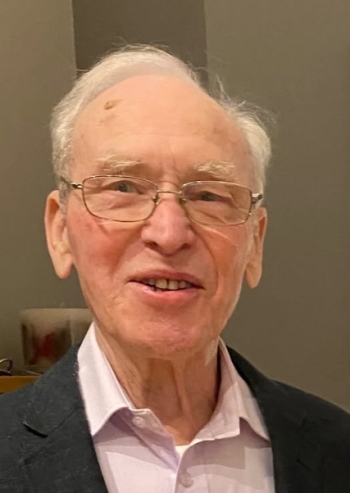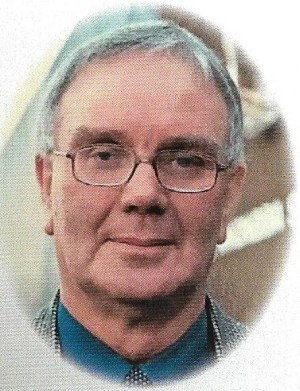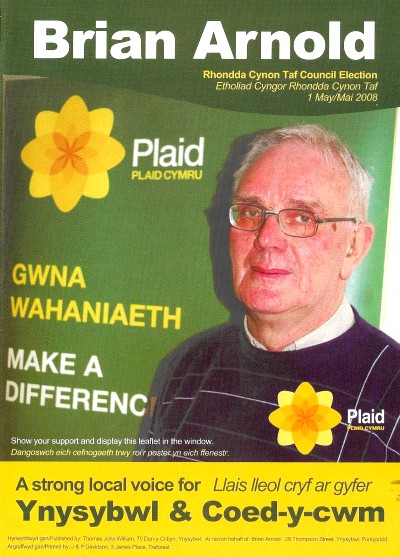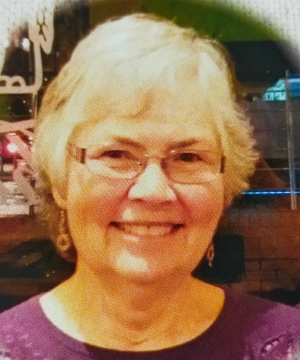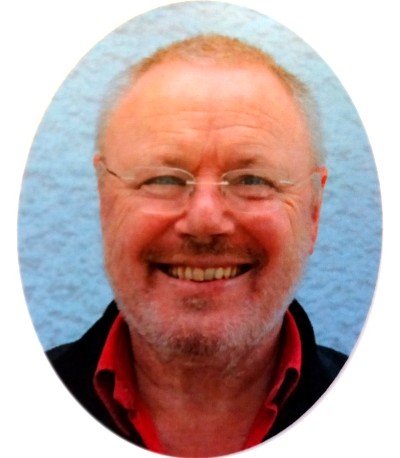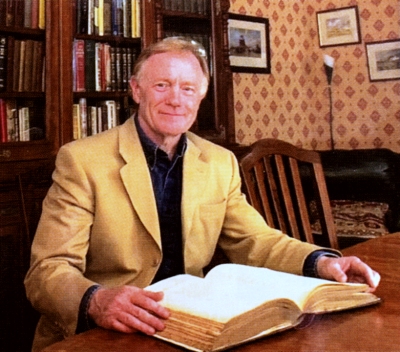
Tribute by Hywel
My father is surrounded by his people today.
He would have enjoyed your company, so many familiar faces to catch up on old times.
I admired my dad, though I never told him that.
My father was a multitasker, teacher by day, campaigner by night and bouncer at Clwb Ifor Bach on the weekend.
The easy path in life is one of conformity – going with the flow, accepting your lot and not asking for more.
Speaking out against injustice, standing up for cause, daring to imagine a different future, requires a degree of self-sacrifice and comes at a price. It ruffles feathers – an irritant to the established order of things.
My father wasn’t a go with the flow sort of guy. In fact, he spent most of his life swimming against the tide in pursuit of more, much more for Wales and its people. He mustered a rag tag army of volunteers to go swimming with him – Dai Payne, Dez Harries, Terry O’Neill, Rhys Lewis, to name but a few – sadly no longer with us but all instrumental in making those hard yards on the long journey to a better future. And not forgetting his dear friend Alan Jobbins who is with us today.
I remember crisscrossing the streets of Cardiff with my dad as a kid, stopping to drop off leaflets, posters and placards. We knew from a young age that my dad liked to talk, and a simple drop-off could quickly turn into a fully-fledged meeting. And it was sitting outside in my father’s second-hand Renault 4, not complete with heating, that my siblings and I learned the art of patience and boy did we learn patience.
In May 1979, my dad decided to stand as the Plaid Cymru Westminster candidate for Cardiff North. His campaign office was located at the top of City Road in Roath – a mile-long road comprising of shops, takeaways, pubs and motorbikes from Japan.
During the course of his election campaign, I would make frequent visits to the campaign office with dad. The place was a hive of activity – boxes pilled high, leaflets being handed out to volunteers and wooden steaks being attached to pictures of my dad for people’s front gardens. If the results of the election were determined by commitment, passion and energy, my dad would have left the rest of the field standing. Sadly, he came in a respectful last with 1,081 votes, just 16,100 votes shy of victory.
On Monday morning, my dad went back to his day job teaching at Gladstone Primary School and I headed off to catch the number 25 bus to take me to my school in Llandaf. As the bus made its way along City Road, past the now closed campaign office, I saw a huge Welsh flag in the window with following words written beneath it. Words that have never left me:
I am wounded but not yet slain
I will rise up and fight again.
I was just 12 years-old at the time but realised in that moment, that my father was in fact a warrior.
And he was true to his word, he did rise up and fight again, and was elected to serve as an Assembly Member in the newly formed National Assembly for Wales in 1999. And that spirit sums up my dad.
He wasn’t perfect by any means. Time dedicated to the cause inevitably resulted in less time to do the normal dad things. But that was okay. He was a good man and solid father who loved his children and family dearly. His Plaid Cymru meetings at the New Ely pub in the 70s were mutually beneficial for both my dad and us siblings. Those meetings yielded several hundred beer mats and a collection that covered our bedroom walls for many years.
My dad was a character, tipyn o cymeriad. He was always smartly dressed, just like his father, and just like his father had no real interest in material things. When the Renault 4 finally packed in, he found a suitable second-hand replacement. His yellow Ford Cortina was instantly recognisable in the neighbourhood. When the rusting fenders above the front wheels needed replacing, dad found a pair of aqua marine fenders that would do the job. There was just something about that car that attracted attention. So much so that it was stolen five times from outside the house. The popularity of Starsky & Hutch, at the time, may have played a part in the thefts. We’ll never know.
It’s hard to summarise a life on a few pieces of paper.
Like a lot of people who are committed to affecting social change, once my dad, had set out on this path, there would be no turning back. It was all consuming, it would become his life’s work.
We need people like dad, like John Benson, like Alan Bates who make a stand for what is right and stick at it, whatever the cost. That’s the only way that meaningful change happens.
When I look back at my dad’s life, I think I can safely say, that he made the most of every minute and made every minute count for Wales.
I’ll miss you dad. Nos da
Tribute by Rhys
Dad was a man of his own patch. He took pride in being “Cairdiff born and Cairdiff bred,” and his accent and enthusiasm for the capital city was obvious to everyone. He had loads of stories about the people and places of his youth. Some of us here will never forget the long discussion Dad and Auntie Elizabeth had one Christmas Day about what colour a front door was on Albany Road in the 1940s. He was extremely proud of his parents and adored his sisters, as they adored their younger brother. With Auntie Elizabeth and Auntie Martha, he was always guaranteed a laugh, no matter how bad his joke was!
Dad was always a bit of a rebel. At the time, it was very unusual, if not unheard of, for a non-Welsh speaker with a broad Cardiff accent to join Plaid Cymru. He had incredible energy and passion. His drive must have come as a bit of a shock to some Plaid members in Cardiff at the time, but he had a clear vision that a better Wales was possible. Yet he knew that would require a lot of hard work. Dad never expected anyone to do any work that he wasn’t doing himself.
When Dad joined Plaid Cymru in the late 1950s, it was numerically the biggest party in Cardiff. However, due to my Dad’s efforts, the membership soon plummeted.
Yes, you heard me correctly. After finally receiving a list of the membership from the legendary Nans Jones, my father realised that it must be wrong, as activists and elected members from other parties were included. Once a Plaid member, always a Plaid member. At one address he visited, it turned out that a lodger had been the Plaid member, but he had moved away in the mid-1930s, over a quarter of a century earlier!
With the membership list now more realistic, the hard work of campaigning began. In those days, there was real hostility towards the Welsh language and Plaid Cymru in Cardiff.
There are many stories of Dad canvassing. Some, like his run-in with an angry monocle-wearing English gentleman, cannot be repeated from a chapel pulpit. Others, like when he accidentally smashed milk bottles and quickly covered his rosette to tell the angry resident he was calling on behalf of the Labour Party, are tamer.
Despite the lack of electoral success for decades, Dad was always positive. He would look for something encouraging even in the dullest elections. I remember during the 1997 election, Dad was thrilled that Ieuan Wyn Jones had increased his majority despite the wave of support for the Labour Party, and that Plaid Cymru had kept its hold in over half the constituencies. His inspiration to establish Clwb Ifor Bach came from wanting to offer hope to young people after the disappointment of the 1979 referendum and the election of Margaret Thatcher.
Welsh had long died out in the family by the time he set out to learn the language. To him, Welsh was a gift, and he taught it to adults for decades. When numbers were too low to sustain the Welsh class at Gladstone School, Dad and Penri Jones would cross the road to Cathays Cemetery to add names to the register!
He passionately believed that Welsh language was an integral part of life in Cardiff. The fact that so many place names in the capital are in Welsh inspired him to research and uncover the rich history of the language in Cardiff. He loved discovering old Welsh names, and many like Nant Lleucu and Heol Plwca are now used officially.
It’s hard to believe today that the policy of Glamorgan Council until the late 1960s was that at least one parent had to speak the language before a child could receive Welsh-medium education. Though he hadn’t yet mastered the language, Dad fought to ensure my brother John could receive Welsh-medium education. This policy change led to a tremendous growth in Welsh-medium education in the southeast. Today, over 70% of Cardiff’s Welsh-medium pupils come from non-Welsh-speaking homes.
He fought for decades against his employer, the county council, to expand Welsh-medium provision. It didn’t matter to him that this harmed his career. To Dad, Wales was far more important than any personal benefit. He was instrumental in establishing several schools, and his expertise in Cardiff’s history enabled him to suggest appropriate names.
Dad loved meeting former pupils from Court y Ala and Gladstone. Many would tell him how he changed their lives and awakened their sense of Welsh identity. When Dad died, so many of his former pupils got in touch and spoke about him on social media. Many described him as their favourite teacher. Many said that because of him, they now spoke Welsh, their children attended Welsh-medium schools, and that it was Dad who taught them to sing the National Anthem. We can never quantify the contribution of a good and inspiring teacher.
Despite retiring from the National Assembly back in 2007, it was incredible in the days following his death to be contacted by former constituents he had helped. People like Michael O’Brien, a victim of a grave miscarriage of justice, and John Benson and Phil Jones, tireless campaigners for Allied Steel & Wire workers and their families.
The day he died, Geraint Davies, the first Assembly Member for the Rhondda, phoned me. He told me of all the support Dad gave to his successful campaign in the Rhondda in 1999, despite this greatly diminishing Dad’s own chances of being elected. That was typical of Dad. Plaid Cymru and Wales always came before any personal gain.
The final years were difficult for him, but I never heard Dad complain about himself. Right to the end, his smile when we saw him remained the same, and the caring staff at Shire Hall saw beyond his illness and showed incredible kindness towards Dad and to us as a family.
Dad leaves behind 12 grandchildren. Despite his many contributions, this is his greatest contribution to his beloved nation.
Thanks to people like Dad, through their words and actions, we can sing today with renewed confidence:
“O bydded i’r hen iaith barhau.”
(“Oh may the old language endure.”)
Tribute by Dafydd Iwan (translated)
Thank you for the opportunity to say a few words about a very special man. I first met Owen John at a Plaid youth summer school in Llangollen sometime back in the mid-60s, when we were all young. And I was surprised and amazed by this young man from Cardiff who was so passionate, so fiercely passionate about Plaid and about Wales—and he didn’t speak Welsh! I had never met such a creature, I lived in Llanuwchlyn! And I was surprised and amazed by this young man for several days during that week.
I think I saw Owen John beginning to grasp the Welsh language, because I had a friend with me from Llanuwchlyn, with red hair, and someone had clearly told Owen John that the word we used for someone with red hair was “cochyn.” So, every time my friend entered the room, Owen John would shout “cochyn!” across the place. It was clear he enjoyed the sound of the word, and that he could say a Welsh word and people would respond. My friend was not pleased at all! Unfortunately, someone else taught Owen John during the week that there was another Welsh word that rhymed with “cochyn,” and Owen John was even more delighted that he now had two Welsh words, both rhyming, both with a wonderful sound. So every time my friend came in, he would say “cochyn mochyn!” (redhead pig!), and my friend was not pleased at all!
And I think that was the beginning of Owen John’s journey into the Welsh language. Because I met him over the years, over half a century, at conferences, committees, rallies and protests, canvassing, and of course, by then, Owen John had mastered the language, without losing any of his fire, without losing any of his enthusiasm. And every time you met Owen John, you were in the middle of some campaign, always. You couldn’t help but be amazed at such energy, such spirit, and such enduring enthusiasm.
As it happens, on the way here, I was buying guitar strings, having decided to keep going for another little year. And who was there, someone I had never met before, was the woman we just heard singing. And Stacey told me how Owen John had changed the course of her life and her family’s life, had supported her through her period of learning Welsh, had supported them as they moved to a Welsh-medium nursery and then to a Welsh-medium primary school, and Owen John was there throughout, supporting every campaign.
And then, of course, Clwb Ifor Bach. People were surprised that Owen John was one of the main founders of Clwb Ifor Bach. When something like that happens, something that leaves its mark on your culture, it lasts for years. Those of us who were in Cardiff during the 60s, it was almost a pain to meet Owen John because he was always bubbling over something. Bubbling over the idea of establishing this Welsh club. And you knew it was going to happen. Years of bubbling, campaigning, pushing, and fundraising, and in the end, the doors of Clwb Ifor Bach opened. I don’t know what Owen John thought of the place in the end, but it has been an incredibly important contribution, and it brought people in. And that, of course, is our shared dream, and of course, Owen John’s dream. To make Welsh a living language, and to bring Welsh to the heart of Cardiff.
He loved Cardiff. He was in love with Cardiff. Many of us had the experience of walking around some of Cardiff’s streets with Owen John, and he would say “here was… here was published…” He knew the history of Cardiff, and he tied the history of Cardiff with the history of the Welsh language and the history of Wales. To be honest, one of Owen John’s big arguments was that we are proud of Cardiff as a capital city because it was, essentially, originally, a Welsh-speaking city. And we all have these memories of a man who bubbled over with love for Wales, for the Welsh language, for its history, and someone who changed the life of Cardiff and Wales to a greater extent than most of us ever will.
It was a privilege to know Owen John, and sweet is the memory of him. Thank you for him.
Tribute by Lona Roberts
Now then. You who go door to door canvassing, face to face with someone standing before you, remember: you are offering them a treasure. A better future for Wales, and they are part of it!” That was Owen John. In Plasnewydd, down here. Full of spirit, passion and mischief. As a young man, he was electrified. That spark had taken hold of him. And he had accepted it as an inseparable part of his life.
Let me try to describe what it was like in Plaid Cymru at the beginning of the 1950s. I am the youngest daughter of the Gwyn Daniel family. Another one, like Owen John, who was captured by the ideal of Wales as it could be. My father was a schoolteacher during the day, but in the evenings he would network to get the bricks in the wall. To get him back home at a reasonable hour, my mother insisted on taking me with him. As a child, I was left with him in the Plaid Cymru office on Queen Street. A time when cars and buses flowed busily up and down that street. The entrance was beside a shop, and then you had to climb narrow, steep stairs to reach the first floor. Another steep staircase to reach the second floor, and more stairs to reach the third floor at the top of the building. And there, there was a large room with two offices. At the desks were older women in coats and little hats, and men in ties and suits, and I was allowed to sit with them… stuffing envelopes, waiting for my father. Kind and dear people, salt of the earth. Among them were the brother and sister of Mrs Gruffydd John Williams, wife of the famous teacher, and her brother, Megan’s father, and Emrys Roberts.
Now I don’t know how many of you here this afternoon had the experience of hearing Owen John describe his first visit to that office. Arriving full of excitement, with two or three friends, offering himself to win over the new Welsh. Climbing one set of stairs, climbing the second set of stairs, then the third, and opening the door. I was in stitches listening to him describe the experience of opening that door. But Owen John wasn’t discouraged, he kept going. He later connected with Tŷ’r Cymru on Gordon Road, and again received the experience of being part of a group of people much older than him, but all focused on improving Wales’s future.
I lived and breathed that place as a child, among the old furniture of generous homes. I remember well the welcome given to a sofa that arrived from his home through the kindness of Mrs Dewi Watkin Powell. The Bible speaks of the prophet Elisha grasping the mantle of Elijah the prophet, as he was taken to heaven. Owen John grasped the mantle of Iorwerth Morgan, who had been a great benefactor to the team, and Owen John worked diligently there to secure a future for the house. Thank you, Owen John, and thank you too, to his family.
Rhys has asked me to read one of the parables of the Lord Jesus. Here is the Parable of the Mustard Seed. This parable appears in the gospels of Matthew, Mark, and Luke. Here it is as it appears in the Gospel according to Matthew:
“The kingdom of heaven is like a mustard seed, which someone took and sowed in a field. It is the smallest of all seeds, but when it has grown, it is the greatest of all shrubs and becomes a tree, so that the birds of the air come and nest in its branches.”
And that’s it, without any explanation. A glorious example of how Jesus taught, a wonderful example of his confidence in the success of his mission. Owen John is now free from that cruel illness that bound him for so long, and he is now among our cloud of glorious witnesses. He is in the lineage of those who planted seeds and nurtured the garden in all weathers. Confident that there would be a harvest, and that harvest under the blessing of the Almighty. He had the privilege of seeing his work bear fruit, and rejoicing in that.
“Since we are surrounded by such a great cloud of witnesses,” says the letter to the Hebrews, “let us run the race set before us without faltering, keeping our eyes on Jesus, the author and perfecter of faith.”
And now here are parts of the holy word to comfort and encourage us:
The psalmist says, “My soul, bless the Lord, and all that is within me, bless his holy name. He is the one who forgives all my sins, heals all my diseases, crowns me with love and mercy. God is our refuge and strength, a ready help in trouble. The Lord is my light and my salvation, whom shall I fear? The Lord is the strength of my life, whom shall I dread?”
And the Lord Jesus says, “Come to me, all who are weary and burdened, and I will give you rest. I am gentle and humble in heart. I leave you peace. My own peace. Not as the world gives do I give to you. Do not let your heart be troubled, and do not be afraid. In the world you will have tribulation, but take heart. I have overcome the world.”
And from the work of the apostle Paul: “Who shall separate us from the love of Christ? I am fully convinced that neither death nor life, nor present nor future, nor powers, nor anything else created shall separate us from in Christ Jesus our Lord. Death has been swallowed up in victory. O death, where is your victory? O death, where is your sting? But thanks be to God, who gives us the victory through our Lord Jesus Christ. Therefore, my dear friends, be steadfast and immovable, always abounding in the work of the Lord, knowing that your labour in the Lord is not in vain.
Let praise be to his name,
Amen.

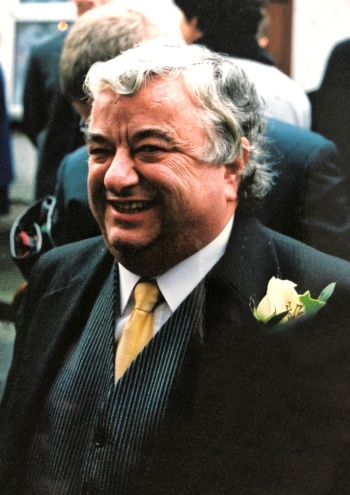 This is a task that I – and others taking part in today’s proceedings – did not seek and do not relish. It has been thrust upon us by recent events. The same can be said of everyone present this afternoon: we would prefer not to be attending the funeral of our friend, Philip Richards, and that he was still brilliant, bright and breezy among us – albeit of mature years. Yet we are where we are, and gather today to remember him; to share our knowledge of him – and, above all, to celebrate his life among us.
This is a task that I – and others taking part in today’s proceedings – did not seek and do not relish. It has been thrust upon us by recent events. The same can be said of everyone present this afternoon: we would prefer not to be attending the funeral of our friend, Philip Richards, and that he was still brilliant, bright and breezy among us – albeit of mature years. Yet we are where we are, and gather today to remember him; to share our knowledge of him – and, above all, to celebrate his life among us.